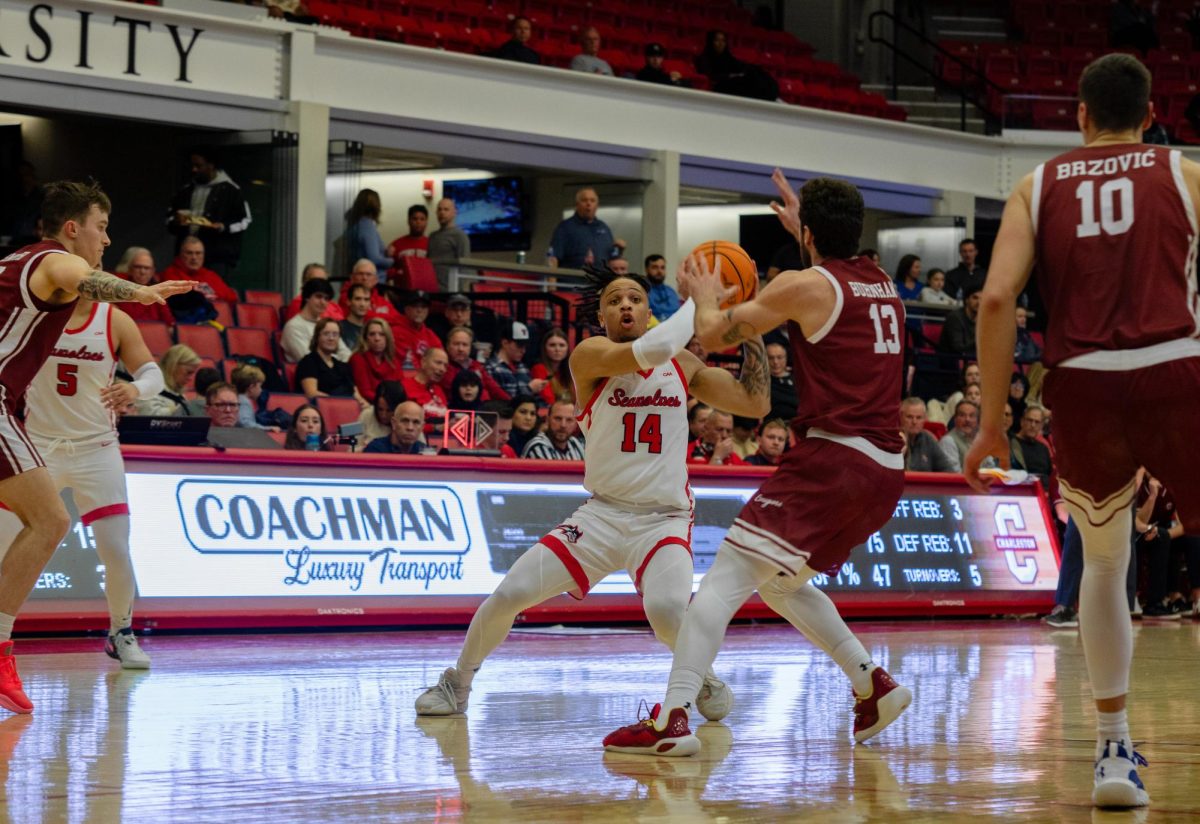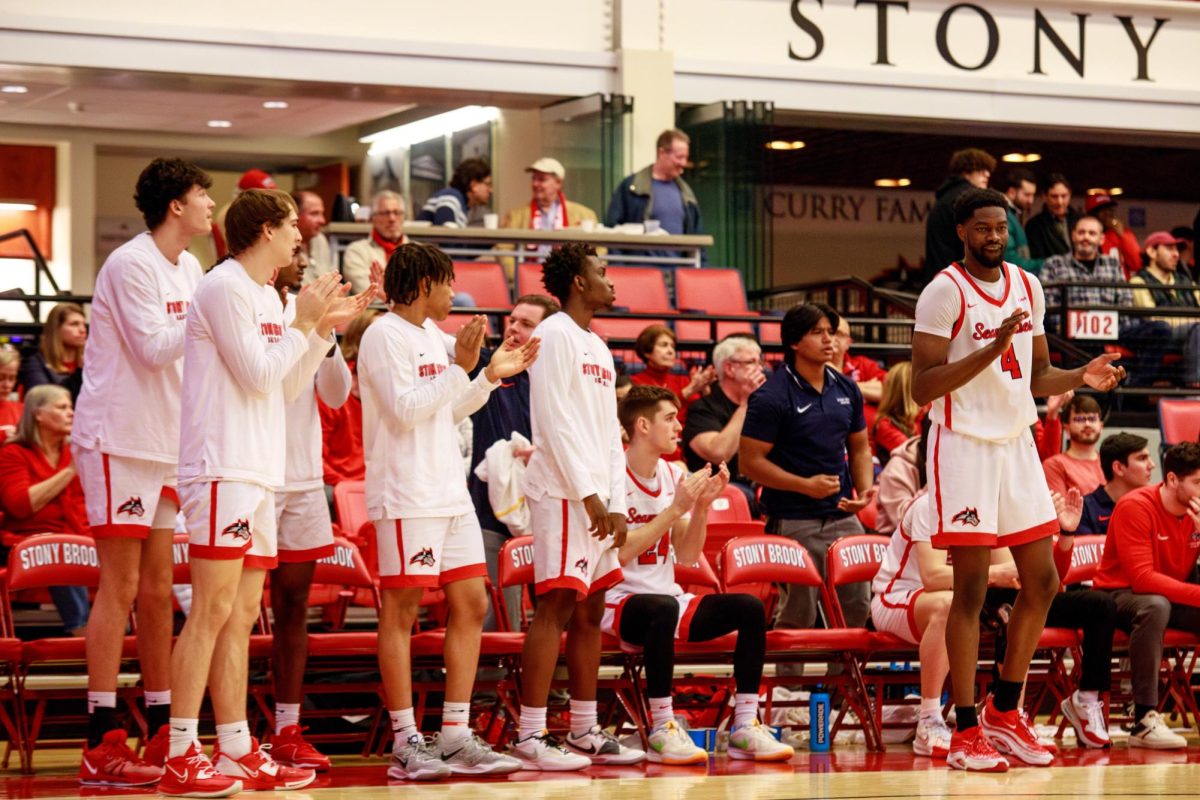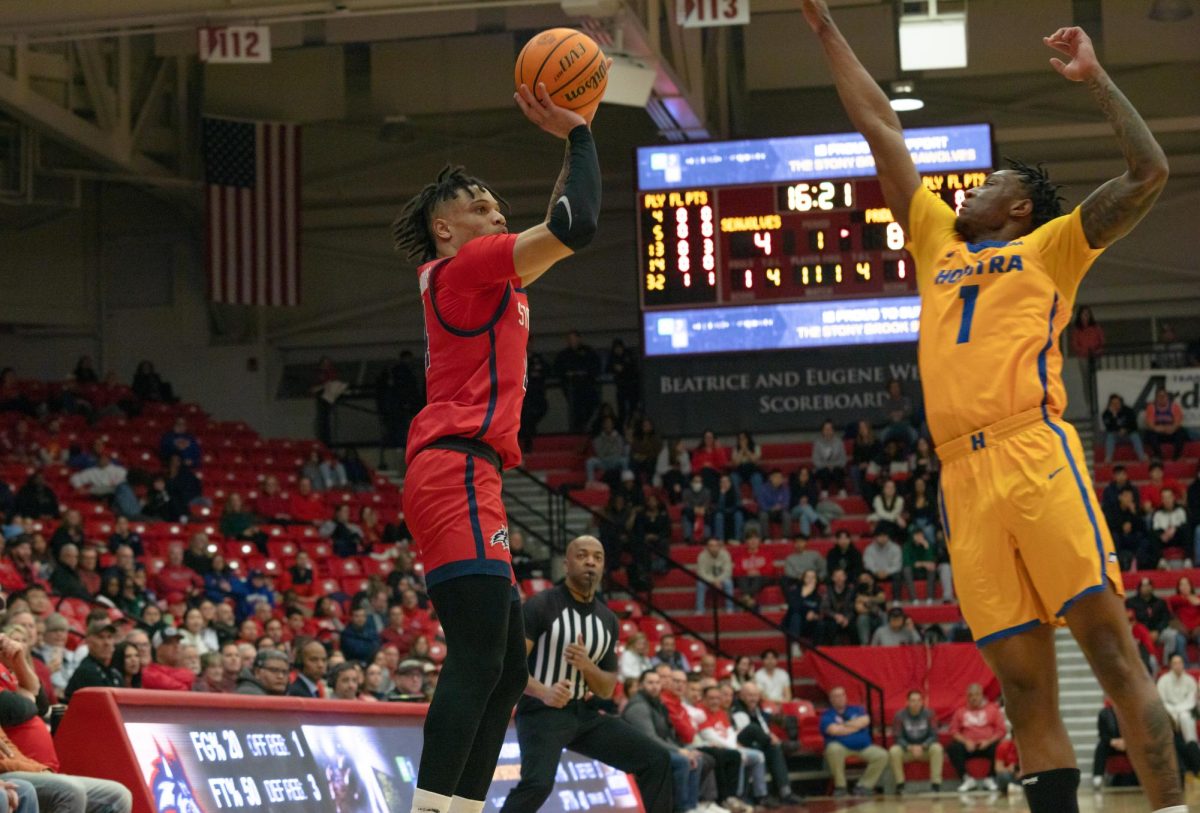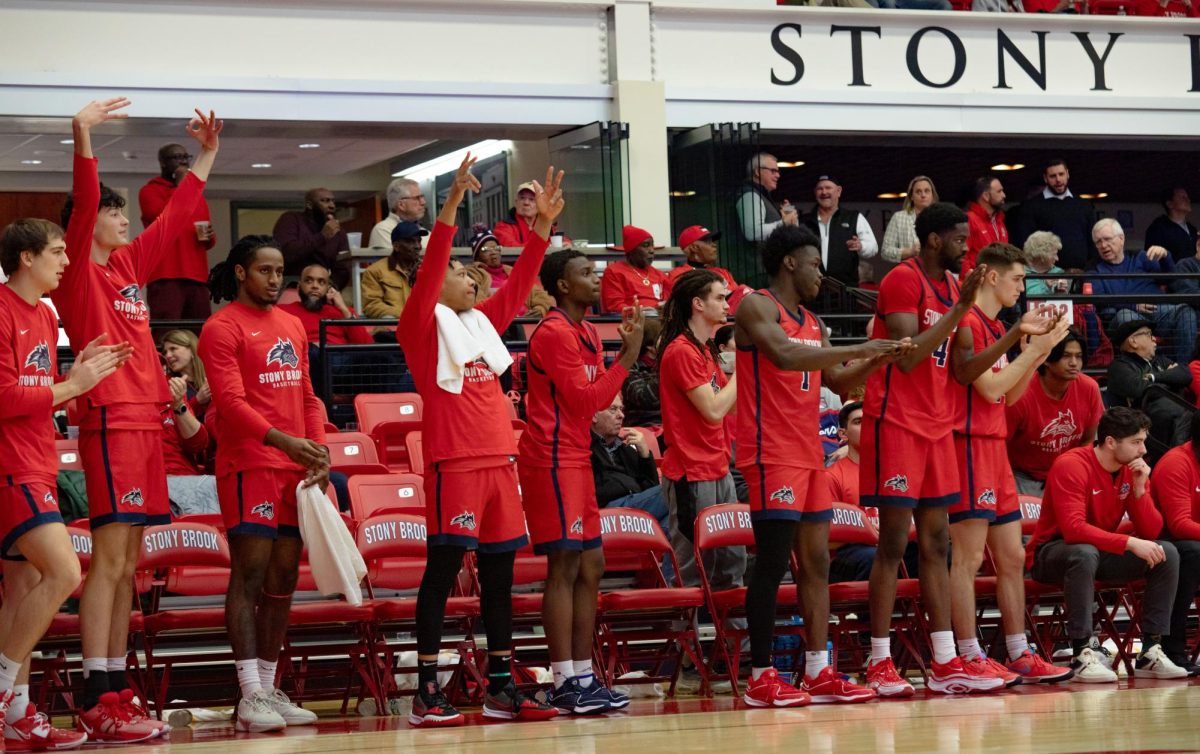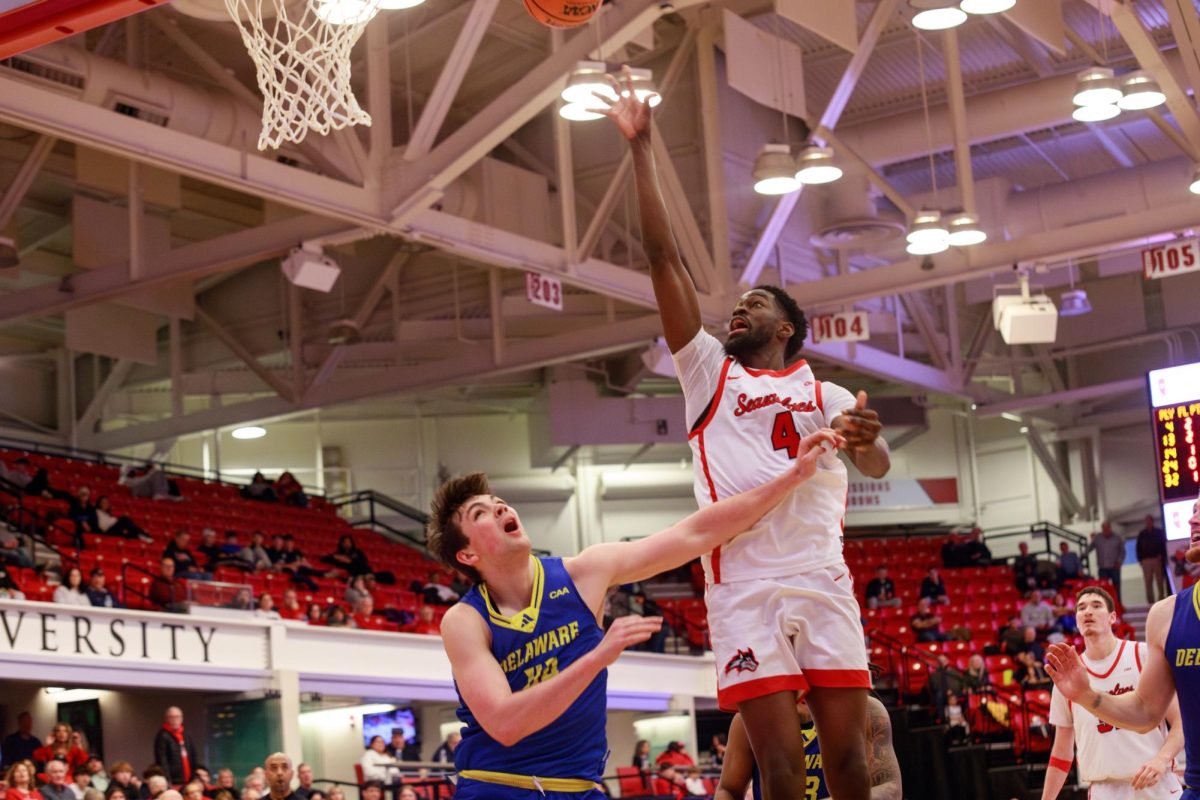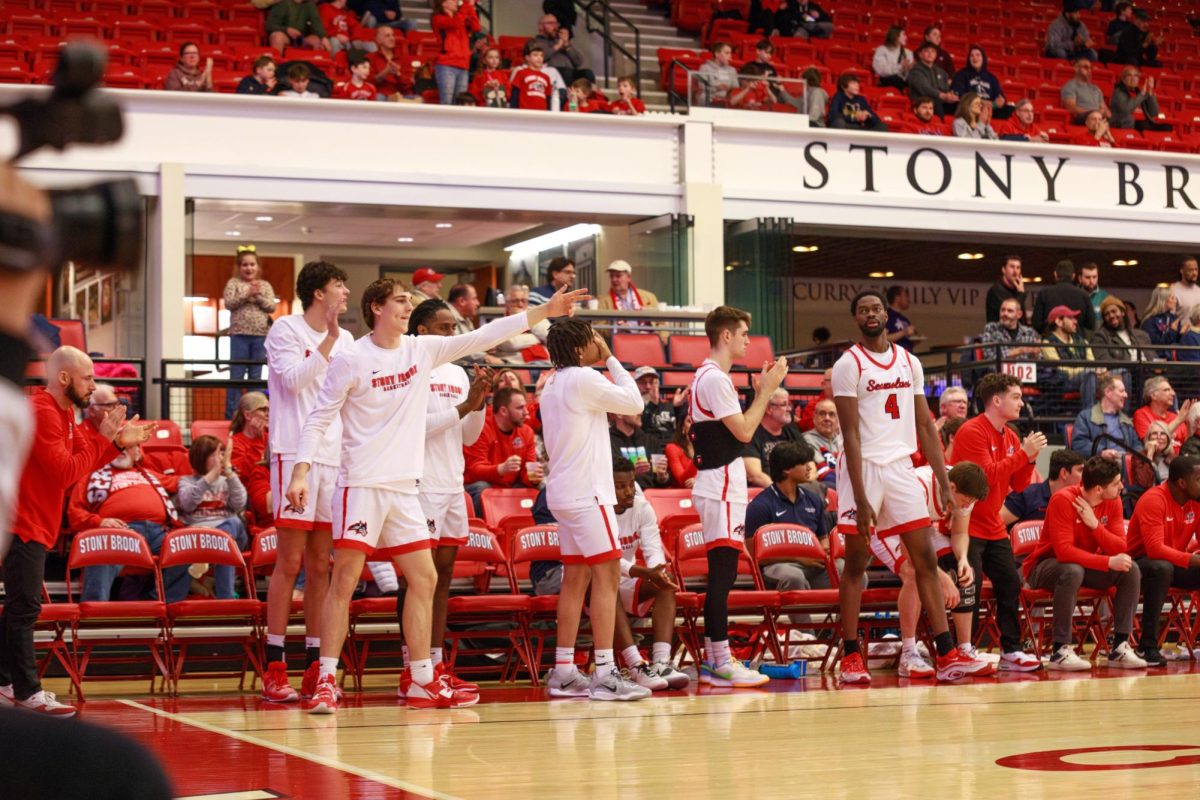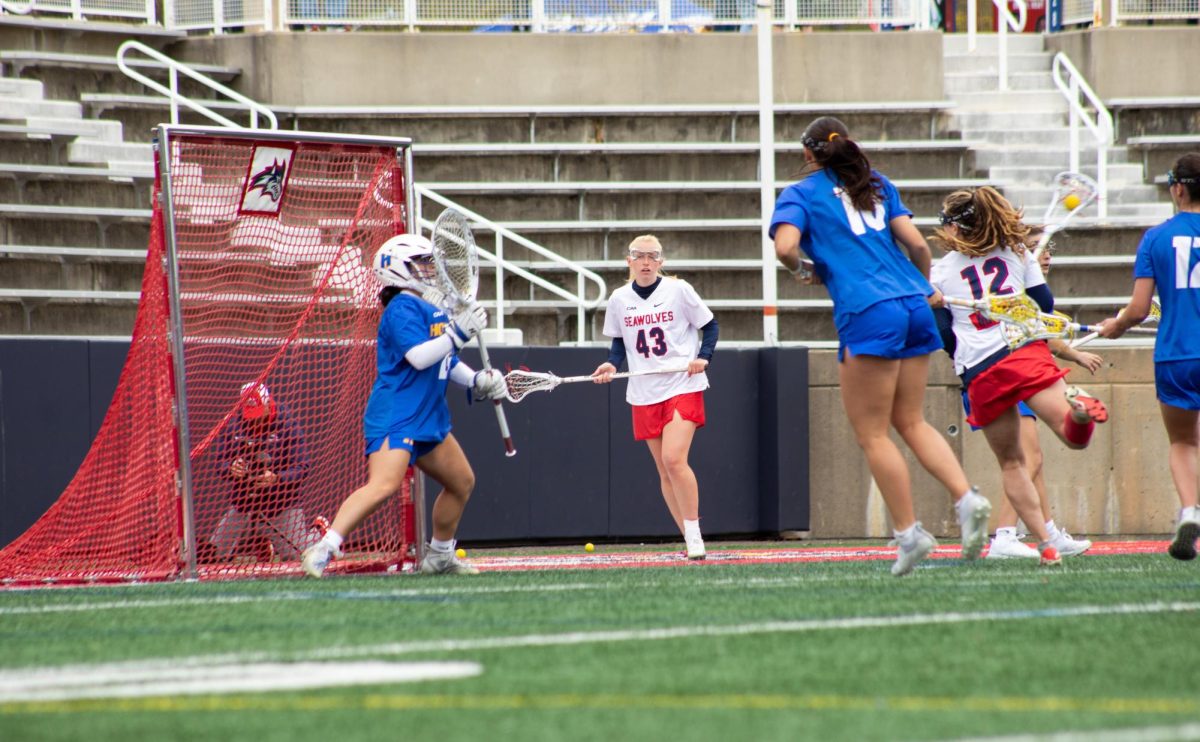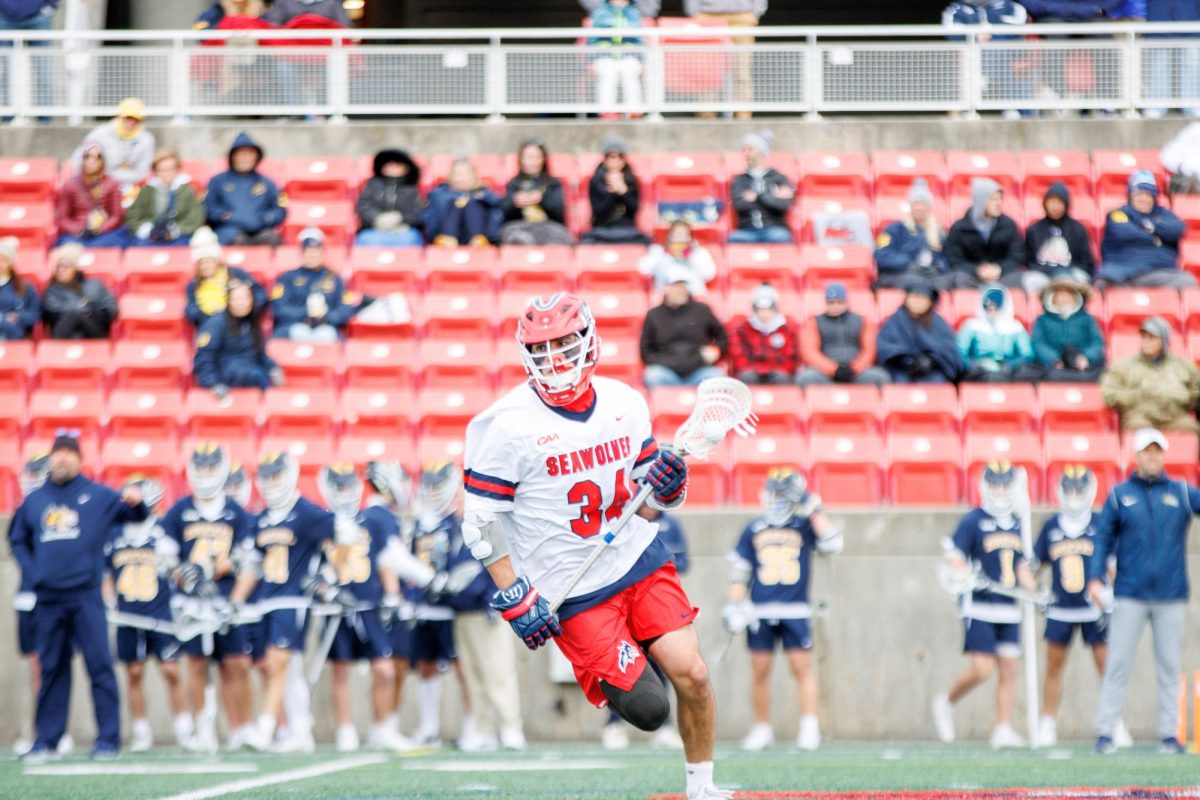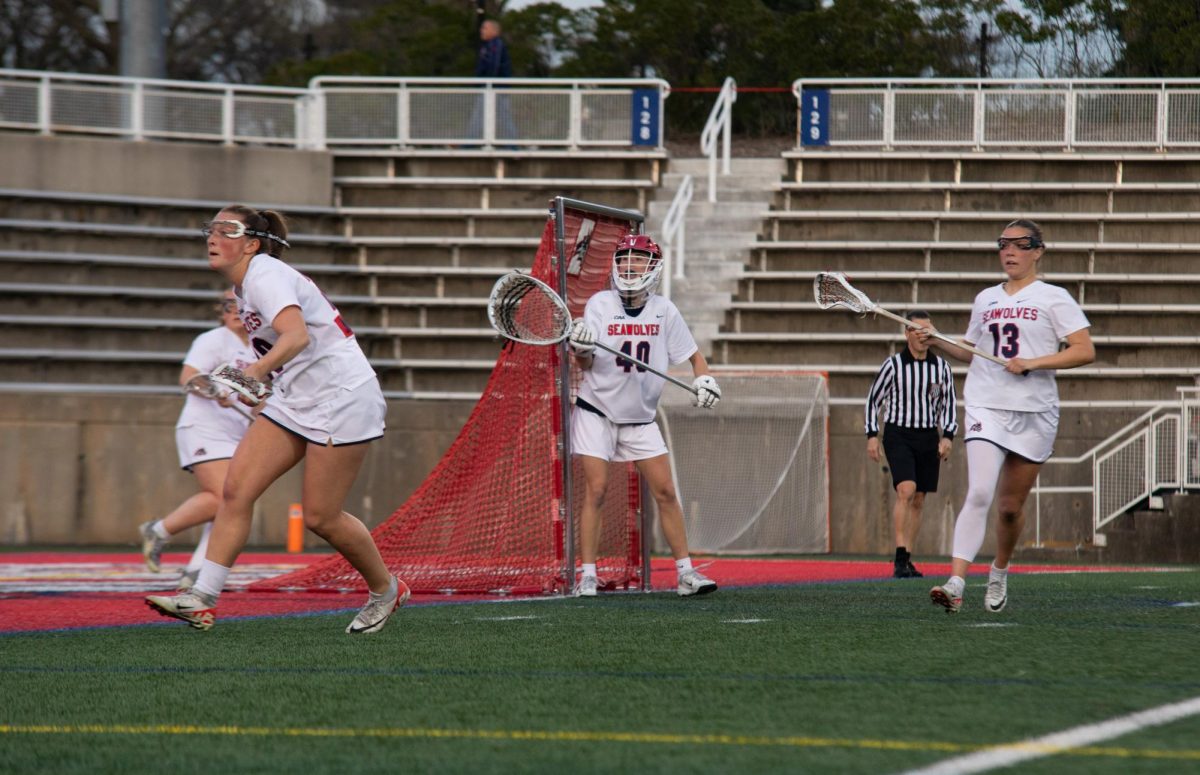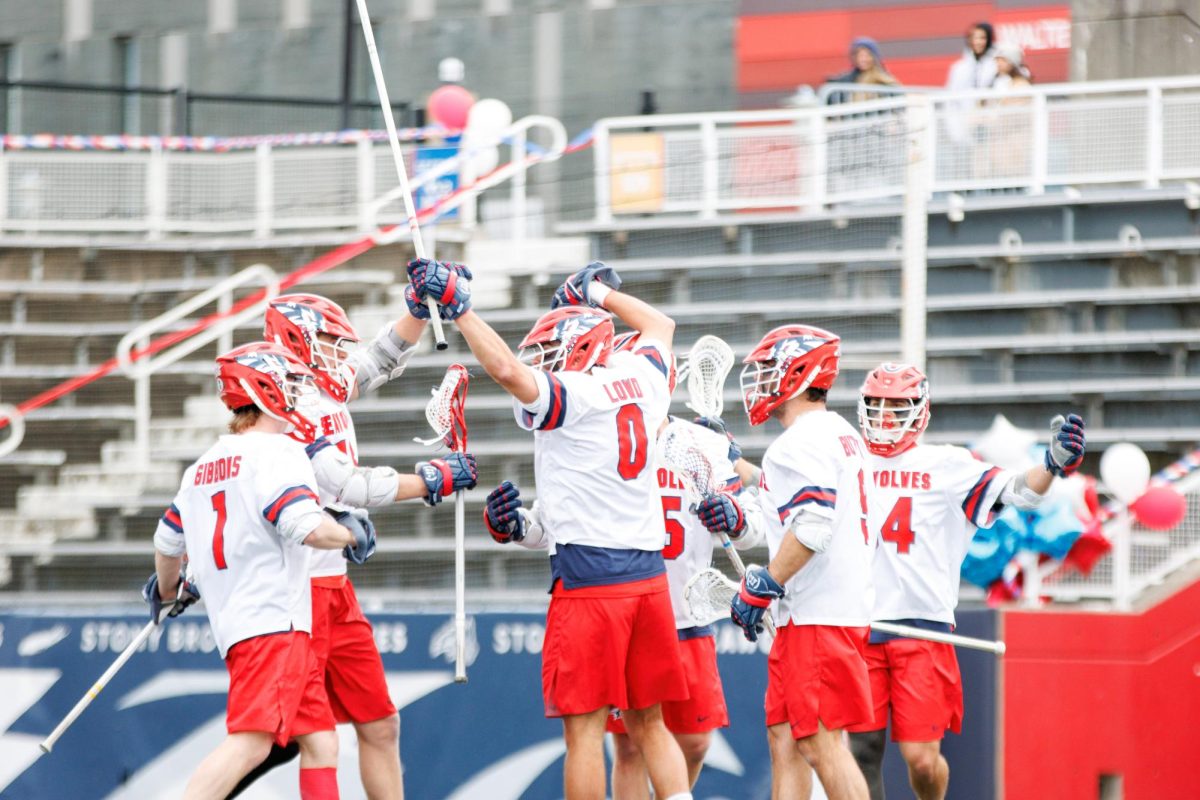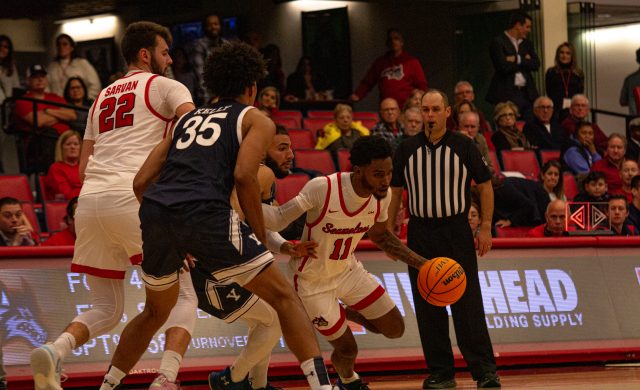
Even after rising through the ranks of Junior College (JUCO) to Division I basketball, guard Tanahj Pettway still feels like the best is yet to come from him.
Bitten by the injury bug, the Stony Brook men’s basketball team needed all the help it could get. As the sixth guard coming into the season, Pettway was initially not expected to be in the regular rotation. However, once guards Aaron Clarke, Dean Noll, Sabry Philip and Jared Frey all suffered significant injuries, a spot on the court opened for Pettway, and he seized the opportunity.
Pettway provided some spark to the Seawolves and by season’s end, became the team’s de facto sixth man.
Pettway had to overcome countless obstacles to make it to this point, as his story starts in Worcester, Mass. He was born into an athletic family, as both his father Kevin and his uncle Al played college basketball for Worcester State University. With multiple collegiate athletes around him growing up, a basketball was placed in his hands as soon as he was able to hold one.
“There’s a whole bunch of people from my family that play basketball,” Pettway said in an interview with The Statesman. “But the love stemmed from my father. He was a high school coach for North [Worcester] High School along with my uncle. While the high school team was practicing, I was about two, three years old, dribbling a basketball. I grew a passion for it.”
Pettway was a two-sport athlete growing up, also playing football through his early high school years. It was during his sophomore year of high school when he quit football, fully setting his sights on basketball. Pettway always knew he was talented enough to make it to the next level on the hardwood.
“I was always naturally talented,” Pettway stated. “I always thought like, I can make it as long as I believe in myself and the people around me in my circle. Since my family believed in me, I felt like I could achieve anything. I just knew it from the beginning.”
Pettway attended The MacDuffie School, a high school with noteworthy basketball alumni such as Charlotte Hornets guard James Bouknight, former Atlanta Hawks forward Omari Spellman and Kansas State star Ismael Massoud. During Pettway’s time there, the team was able to reach the league’s postseason tournament three times, including a run to the semifinals. However, it was not only the players that made MacDuffie special, as they were led by coach Jacques Rivera.
Under Rivera, the team experienced the most success in its history, with Pettway being a part of it. Rivera was one of Pettway’s biggest supporters and mentors on his journey to becoming the player and man he is today.
“It’s like having a teacher, a father, and a coach all in one,” Pettway said. “He’s going to push you to your limits. He’s going to make sure that you do the job that you want to do for yourself. So the goals that you set for yourself, he’s going to make sure you achieve them. And everything you do on and off the court. He’s a great dude. He’s a great coach. He’s a great father. He’s crazy, though. I love it.”
While he was confident, Pettway’s recruiting process coming out of high school was slower than anticipated. He had interest from very few Division I schools, so he opted to commit to Indian River State College of the NJCAA in hopes of landing a bigger and better gig.
The lack of offers were a shock to Pettway’s system.
“That was kind of a wake up call for me because I thought I was doing enough,” Pettway said. “And I wasn’t to be really honest. But the recruiting process is very difficult. I always felt like I was always counted out and an underdog in a way. So, I feel like JUCO was another route that I could take to achieve my goal of playing Division I collegiate basketball.”
Playing at a JUCO, Pettway did not have the same benefits as an NCAA Division I athlete. Pettway said that the lack of resources in the JUCO environment forced him to work harder than he ever had.
“And even though it is Division I, it’s obvious JUCO is not NCAA,” Pettway said. “So everyone that goes, their goal is to get to [the NCAA]. And so I kind of went in there with the mentality that like, ‘Hey, listen, you’ve got to do you’ve got to go. You can’t mess around. You’ve got to stay focused.’ It kind of challenged me to work even harder to prove myself.”
In Pettway’s experience, working to improve at the JUCO level was harder than it is in the NCAA, which stems from the work that the athletes have to put in without help from the program. However, the independence that was required forced Pettway to improve.
“Like people always say that JUCO grind is different, and it really is because the resources are limited,” Pettway said. “You have to basically do everything yourself. There’s no weight room really. For outside running, you do that on your own time. So that kind of just transformed my mentality and my work ethic to like another level.”
By spending most of his hours in an open gym or working on his own dime, Pettway helped lead his team to back-to-back Southern Conference titles. In his sophomore season (2020-21), they reached the national tournament for the first time in almost 50 years. During the NJCAA tournament run, Pettway averaged 11.3 points, 3.1 rebounds, and 2.2 assists per game. He was given All-Southern Conference honors in both years for his exceptional play.
After his sophomore season, Pettway decided to enter the transfer portal. Unlike his high school years, many teams sought out his services, as he received interest from Eastern Michigan, Central Michigan, University of California Berkeley, St. Bonaventure and Stony Brook.
Stony Brook was one of the few schools who also recruited him while coming out of high school. With a pre-existing relationship in place with head coach Geno Ford, Pettway chose to become a Seawolf.
Pettway found the transition to Division I basketball much easier than JUCO, instead finding hurdles elsewhere. His biggest challenge came towards the end of his first season with Stony Brook, tearing the labrum in his left shoulder. The injury required surgery.
It was the second time in his career that Pettway underwent surgery on that same muscle. The injury caused him to question his future in the game.
“I feel like anybody that goes through a major injury questions if their career is done,” Pettway said. “I was kind of in that mindset, but I had to fight back and be focused on myself working; working on what I have and just trying to be better than what I was before. Coming back with a different kind of mindset.”
Pettway was slated to be Stony Brook’s seventh or eighth guard, behind Clarke, Noll, Frey, Philip, Tyler Stephenson-Moore, Toby Onyekonwu and Kaine Roberts in no particular order. With the first four sidelined for the entire 2022-23 season, Pettway was forced into action and earned his keep.
Pettway scored double-digit points 10 times this season, providing clutch buckets and key plays in various moments to keep Stony Brook. He also made his presence felt on the defensive side, leading the team with 38 steals — 11 more than the next guy — and 1.2 steals per game. Pettway proved himself reliable as well, playing in all 33 games and becoming the team’s fourth-leading scorer while playing the third-most minutes.
Pettway finished the season strong after hitting his stride in late-December. After fully taking control of the team’s second unit, he shot 45.3% and averaged 8.1 points per game over the final 22 games of the season. He had his best game against Delaware, where he went off for 20 points on 8-of-14 shooting, going 4-for-6 from deep while also pulling down seven rebounds. He also played well during Stony Brook’s first-ever trip to the Colonial Athletic Association (CAA) tournament, where he scored 17 points on 7-of-10 shooting, collecting four rebounds and three steals between the two games.
A graduating senior, Pettway’s future at Stony Brook is in question. He has a fifth year of eligibility remaining from the COVID-19 shortened 2019-20 season. He also has an injury redshirt remaining from the 2021-22 season. Though he wants to stay for next season, Pettway called his status “up in the air.”
Though he does not know exactly where he will be playing next year, he has motivation to keep on going.
“My little brother plays basketball — Tahlan Pettway,” Pettway said. “He’s my motivation to keep going. Not too many people make it out of the city. They make it out of high school and they just work 9-5’s or they get into trouble; there’s a lot of crime in that area. I just want to use that and be different.”







